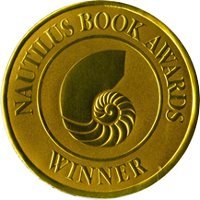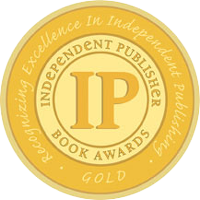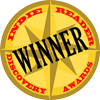The Great Blog Hop 2014
Step One: Acknowledge the person & site that involved you in the blog tour
I was invited to this blog-hop by David Hazard, director of Ascent. I’ve known David for five years now and used his company’s services for developmental editing, website design, marketing materials, and cover design of my first book, After Action. I’m working with him on my current project and his expertise and suggestions are just as valuable the second time as the first. David and his design team are on the forefront of the evolving world of publishing and can help you with your project—whatever stage it is in.
Here’s a link to his website:
David Hazard, Director of Ascent
Step Two: Answer 4 questions about your writing process
What are you working on?
I’m currently working on a book to assist veterans as they adjust to life after combat. I haven’t fully embraced the idea of calling it a self-help book—“self-help” makes me think of crystal-gazing mystics proselytizing the virtues of dandelion milk to restore the balance of the universe and overcome hair loss—but I’m probably going to have to get over that.
Millions of veterans have returned from war and been surprised to find additional challenges waiting for them at home. These challenges run the gamut from mild unease to full blown PTSD. Many try to hide their distress because they think it’s emanating from some inner weakness that others don’t have. But what they don’t realize is that the challenges of coming home from combat are universal, human experiences shared by warriors of all conflicts. They are the result of a healthy, rational mind attempting to process a backlog of difficult memories and experiences.
My second book will offer veterans a new way to comprehend, face, and overcome the challenges of coming home. As the conflicts of the last 13 years wind down, and the military draws down in size, hundreds of thousands of combat veterans are going to leave active duty and return to American society. There’s no guide to help them overcome the inevitable challenges they’ll face in that difficult transition. Not yet, anyway.
How does your work differ from others of its genre?
I have read some very good books about combat. I’ve also read some very good books about the challenges warrior’s face after combat. But I haven’t read any that do both. That’s where After Action, is different. While the main focus is on the process I went through after combat, it is essential the reader understands my combat experiences intimately. I had to bring the reader into my head during the invasion of Iraq so they could experience the same emotions and responses I’d felt while fighting. Only if those emotions and experiences were truly felt could the reader fully understand why I couldn’t just ignore them and move on.
After Action is also different in that my story is not all that unique. It isn’t one of incredible heroics or trauma, spectacular events and dramatic, soul-crushing descents into substance abuse and crime. Most books about war that I’ve read focus on these sorts of “fantastic” stories—and deny their readers the opportunity to identify with what’s on the page. I went to combat eagerly, did my job well, and came home intent on moving ahead with my life. But I couldn’t seem to shake off the effects of my experiences in Iraq. Mine is the story of millions of other veterans who’ve experienced the same thing. That’s what makes After Action resonate so strongly with veterans—they can see themselves on the pages.
There are a lot of books designed to assist veterans when they come home. There’s information about how to dress for interviews, how to apply for benefits, how to not use “f*ck” as a verb, noun, adjective, pronoun, and modifier all in the same sentence… But I haven’t found one that offers a roadmap to navigate the adjustment challenges that keep many veterans from ever truly coming home. That’s what my second book will do.
My second book draws heavily on the work of scholars, scientists, psychologists and historians to define these challenges and give the reader vital information to understand them. Then, using my own experiences as a guide, it will provide a roadmap for veterans to follow as they navigate their own post-combat journey.
Why do you write what you do?
Because I have to. I took my uniform off over five years ago but I’m still a Marine. The lessons I learned after combat could potentially save lives of other veterans. I have an obligation to pass them along.
The challenges of coming home are a minefield that each veteran must cross on their own. But, having walked it already, I am in a position to recommend a safe path for others to follow.
How does your writing process work?
I’m not certain I have one yet. After Action, because it required me to process and understand my own neglected emotions and responses, only began to take form after four or five drafts. Before that point it was a flat re-telling of my combat experiences that read like a diary. But, with the help of David Hazard, I used a story board to map out the major events and themes and weave them together in a compelling, clear narrative. Once I figured out what was important to tell about my own journey, I was able to further refine the manuscript and gain a much tighter focus.
The current book I’m working on is different. I’ve been researching it for well over a year now, reading books, gathering quotes, and solidifying what, exactly, I want it to say. I’ve storyboarded it out on the wall of my office but not to the same depth as After Action. I’m about four chapters in to the first draft right now and gaining momentum. It took me over three years for the first book. I hope to cut that time significantly with the second.
Step Three: Say who is on next week
For next week I have tagged the following authors/artists. Take a look and check them out on March 11th. I’ve inserted hyperlinks to each of their websites. All you have to do is click on their name.
Louise Esola is a freelance journalist based in Southern California. She’s spent much of her 15-year career working for newspapers and magazines and will be releasing her first book this fall. It’s a narrative nonfiction about an obscure Vietnam War tragedy and an injustice that continues to this day.
American Boys: The True Story of the Lost 74 of the Vietnam War tells the story of the USS Frank E. Evans, an American destroyer cut in half in a collision with the flagship of the Royal Australian Navy during maneuvers linked to the Vietnam War. The mysterious accident on June 3, 1969, killed 74 Americans whose names were kept off the Vietnam Wall for bureaucratic and political reasons. Three of the casualties were brothers from a small farm in Niobrara, Nebraska and one of those killed was serving on board with his father, a navy chief who survived. With strong storytelling backed by a massive pile of research and intimate, all-encompassing reporting, Esola’s book delivers a strong case for adding these men to the official Vietnam War death toll. The Evans story is one that is both heartbreaking and inspiring, and takes readers back in time to a tragic era in recent American history.
Don Mirra’s photography captures souls. His work evokes emotional responses that transform the subject of the photograph into a three-dimensional human being. In today’s world of image overload, Don’s skills behind the camera make his work stand out against the backdrop of often campy imitations. It is impossible to view his work and not see yourself–at some level–reflected within.
Don’s a world traveller, Marine veteran, and a good friend. He recently did some portrait work for me that shows what a skilled photographer can do–even if the subject didn’t give him much to work with. While I tell my stories through writing, Don uses the visual medium. A master storyteller, Don’s work from Haiti to the Wadi Rum Desert tells the story of the people who’ve invited him into their lives.
With so many photography charlatans out there you must take a look at his work. You won’t be disappointed.




Hi … I am a friend of Erin’s, live in Leucadia, and surf Beacon’s. I have been working as a volunteer with the NMCSD Surf Clinic which meets every Thursday in Del Mar. As part odf a re-hab program I have been teaching surfing to patients from the hospital helping them recover from injuries sustained in combat. I would like to meet you sometime and talk and get your insight as I think it can help me deal better with the folks I work with. Hopefully I will see you in the water.
Allen
Hi Allen,
Erin mentioned you might contact me and I’m glad you did. The NMCSD Surf Clinic sounds very interesting and I’d be happy to meet up with you anytime. I’ll shoot you an email so we can coordinate.
Talk soon,
Dan